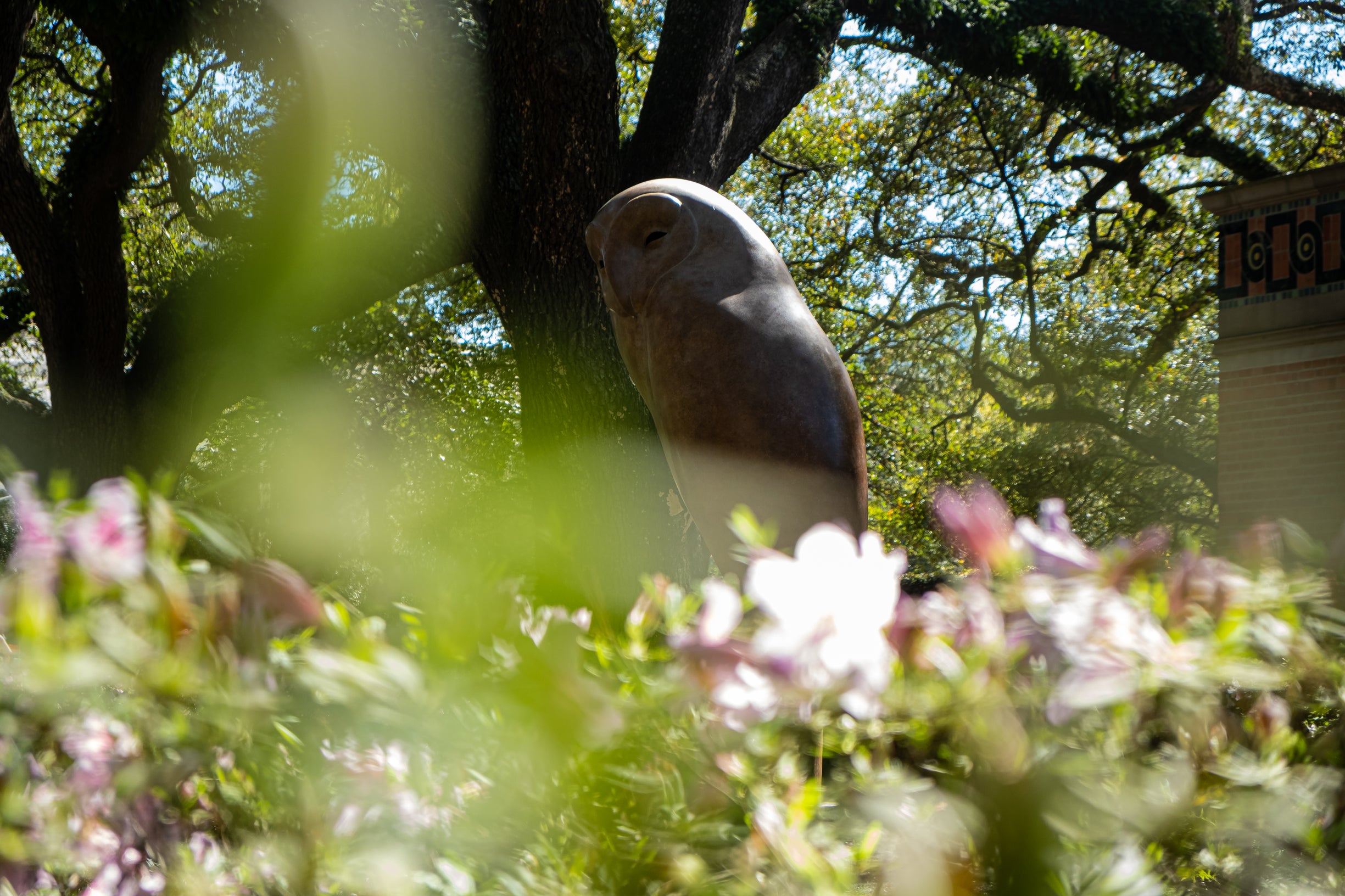The Expanding Horizons Scholarship, generously funded by Rice alumnus Dr. Walter Loewenstern, has been awarded to thirteen students by the Rice University Office of Graduate and Postdoctoral Studies. A unique aspect of this fellowship is that its research will benefit the local community the student travels to. You can read more about Expanding Horizons here. A call for the next round of Expanding Horizons is currently out and will close on February 19th.
For more information, please check out our website or connect with us at gradfellowships@rice.edu.
Maria Barra, Bioengineering
Barra is developing an HPV DNA test that could enhance the accessibility of cervical cancer screening. She is conducting her research in Mozambique, a country with one of the highest rates of cervical cancer globally, mainly due to limited access to screening. Her primary goal is to validate the HPV DNA test within the country, ensuring that it remains accurate and reliable even in non-laboratory conditions.
Khadija Zanna, Electrical and Computer Engineering
Zanna is traveling to Portugal to participate in the Visiting Researcher Programme at INESC TEC. Her goal is to explore elements of blood flow, including heart rate and blood pressure, that can be obtained from Photoplethysmography (PPG) signals. Additionally, Zanna hopes to create smart computer models using AI that can quickly notice any changes in the health conditions of medical patients.
Z. Selcen Boztepe, Anthropology
Boztepe is traveling to the Turkey-Armenian border to explore the exchange of identities and cultural traits through common activities such as beekeeping, honey harvesting, and husbandry.
Badie Khaleghian, Music
The Expanding Horizons Fellowship will fund Khaleghian’s trip to Bali to conduct the first neuroimaging and neurochemical studies of Balinese gamelan music and dance. Her research aims to enhance scientific knowledge by exploring the impact of cultural and experiential elements on the human brain.
Taylin Nelson, English
Nelson is traveling to Barbados to locate first-hand accounts and additional sources on the main parasitic diseases that scourged Indigenous and Barbadian settlers during the eighteenth century.
Summer Perritt, History
Perritt's project seeks to create space for a more diverse representation of the American South, acknowledging Southern identities that diverge from prevalent stereotypes of the region's residents. The research will be conducted in the Raleigh/Durham area.
Alejandra Osejo Varona, Anthropology
Varona’s research will examine the controversies among scientists, policymakers, animal rights defenders, and local communities regarding the management of the hippo population in Pablo Escobar’s former residence and its implications for the control of water resources in the Magdalena River. With the support of the Expanding Horizons Fellowship, she aims to incorporate the experience of local communities living with the hippos to the discussion about the future of the Magdalena River.
Paul DeFazio, Architecture
DeFazio's research is centered on examining ways to make architectural practice more inclusive for individuals who are blind or have low vision. The focus is particularly on exploring tactile methods of architectural drawing and model-building pioneered by blind architects like Chris Downey and Carlos Mourão Pereira.
Samhita Das, Anthropology
Das is traveling to India to explore the consequences of two contrasting medical technologies: hysterectomy and uterine transplant surgery. While metropolitan areas like Mumbai and Delhi see uterine transplantation as a beacon of hope for the future, remote villages in Beed, Western India, are grappling with the ramifications of prevalent and unethical hysterectomies, leading to the emergence of "Wombless Villages." Additionally, she aims to document the real-life experiences of individuals navigating these medical interventions.
Ihsan Arsalan, Anthropology
Arsalan is traveling to Shimshal and Hunza in Pakistan with the aim of documenting the narratives of daily life and how this is impacted by glaciers. The goal is to gain a deeper understanding of how communities organize and endure the challenges posed by Glacial Lake Outburst Floods (GLOFs) while being stewards of the environment around them. Through participant observation, Arsalan wishes to chart the range of ways people interact with glacial ice, their feelings about the state, and the stories they tell about the future to come.
Eric Wuesthoff, Biosciences
Wuesthoff is working in collaboration with local researchers and managers in Madagascar to explore the seed dispersal patterns of brown lemurs (Eulemur fulvus) within and between intact rainforests and regenerating forests. His research aims to support restoration efforts. Furthermore, Wuesthoff plans to provide conservation recommendations to the local community based on his findings once the data collection is complete.
Zhou Zhou, Anthropology
Zhou’s project will investigate the connections between Chinese investment and online scams in Sihanoukville, Cambodia. By dissecting the relationship between Chinese investments and online scams, this research has the potential to benefit the local community by informing more efficient, sustainable policies to regulate Chinese investments and control the spread of organized crime.
Joyah Watkins, Biosciences
Leveraging the work he has undertaken in North Carolina through his non-profit organization, Head Above Water – Saving Life Below, Watkins aims to empower the Puerto Rican community by fostering a deeper understanding of marine conservation and promoting community capacity building.

